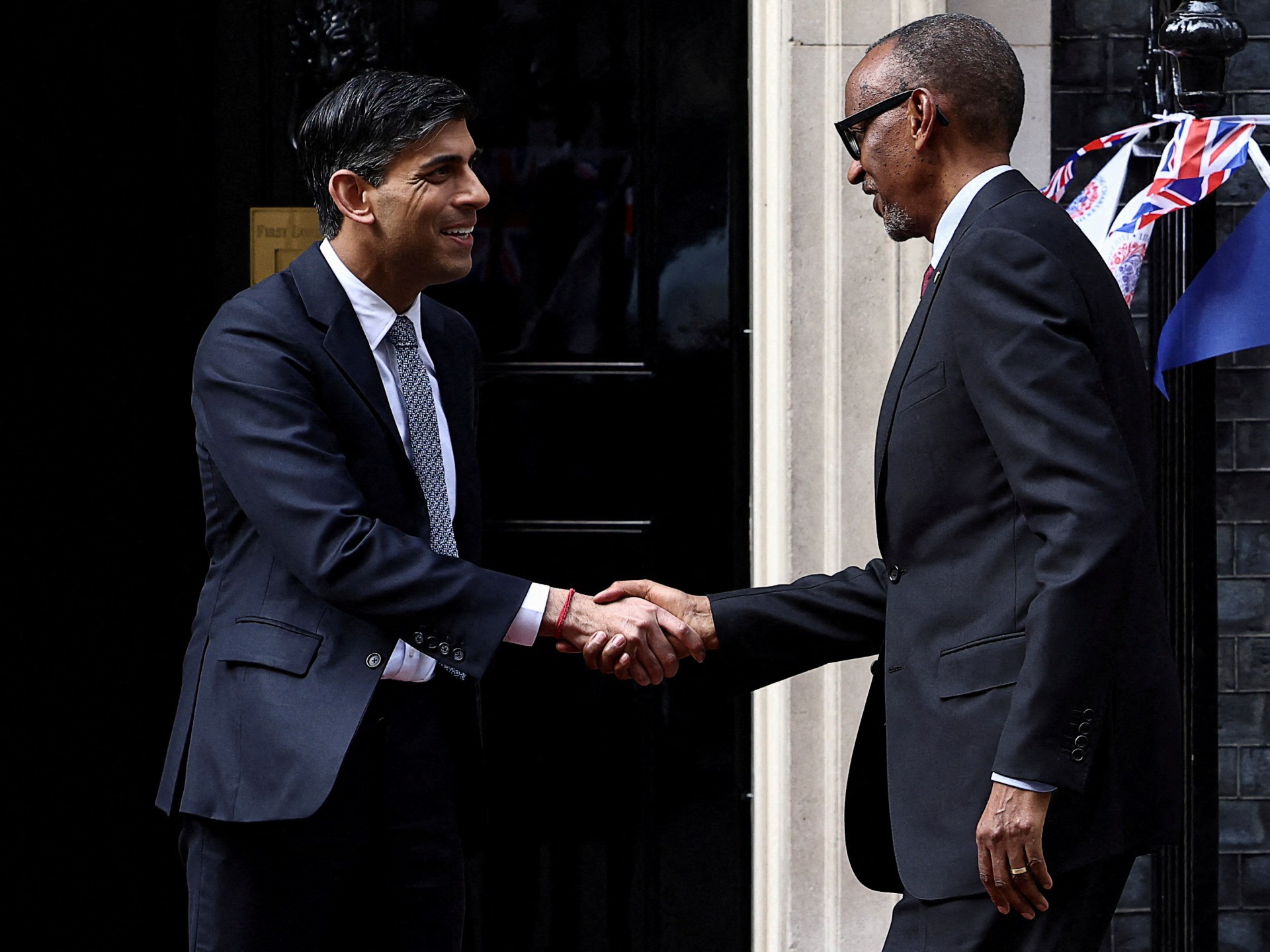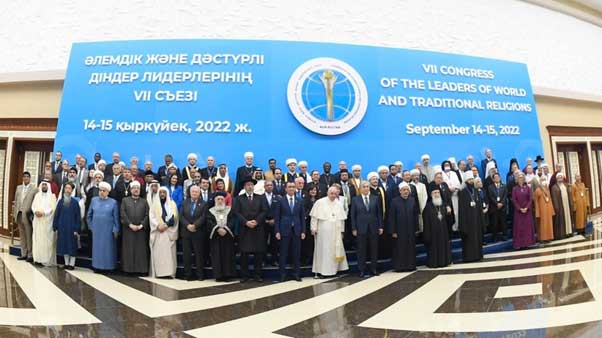Rwanda row: PM Sunak, who pledged to ‘stop the boats’, faces crucial test | Refugees News
Glasgow, United Kingdom – British Prime Minister Rishi Sunak spent the weekend trying to persuade rebel MPs from his own party to back his latest plan to send asylum seekers to Rwanda ahead of a crucial House of Commons vote on the policy.
The embattled Conservative Party leader wants to hand over refugees and migrants to the African nation for potential resettlement in a bid to discourage people from crossing the English Channel to Britain in small boats.
But following the UK Supreme Court’s decision last month to strike down the original legislation on the grounds that Rwanda is not a safe country for asylum seekers, Sunak introduced the so-called Safety of Rwanda Bill, which would make it harder for courts to challenge British deportations to the landlocked republic.
The 43-year-old, who faces a potential rebellion from the centre of his party over concerns his policy contradicts international law, has denied that Tuesday’s Commons session is essentially a vote of confidence in his premiership.
Meanwhile. as well as concerns that the policy is illegal by international law, Conservative politicians further on the right declared on Sunday that it was not “sufficiently watertight”.
Sunak’s denial comes despite Robert Jenrick resigning his role as British immigration minister last week after accusing Sunak of presiding over legislation that was not fit for purpose.
Academic Tim Bale likened Sunak’s predicament to that of former Conservative Prime Minister Theresa May’s ultimate failure to deliver on Britain’s 2016 vote to leave the European Union during her tenure.
Bale said May was forced to stand down in 2019 after being “unable to negotiate a withdrawal agreement with the EU that would simultaneously satisfy all sides of a parliamentary party that – just like it is now – was not only ideologically split but panicking about polling which suggested it was losing support big time”.
The professor of politics at Queen Mary University of London told Al Jazeera: “The only difference is there’s no Boris Johnson-type figure waiting in the wings to take over, meaning that they’re probably stuck with Sunak – an agonising position both for him and for his MPs.”
Opinion polls show Sunak is facing political annihilation at the next general election, which is scheduled for no later than January 28, 2025.
The first Briton of Asian descent to secure the UK premiership took office after the resignation of Liz Truss in October 2022 after she had served 44 days in the post. Sunak was Britain’s chancellor of the exchequer from 2020 to 2022 under former premier Johnson.
But the wealthy former hedge fund manager – whose combined wealth with his wife, Akshata Murty, is estimated to be 529 million pounds ($664m), according to the Sunday Times Rich List 2023 – has so far failed to turn around the fortunes of the Conservatives, who remain about 20 points behind the opposition Labour Party in opinion polls.
Sunak has made his anti-immigration “stop the boats” campaign a central plank of his government’s agenda. He has also made it part of his campaign to win back right-wing voters, who have abandoned the Conservatives for the Labour Party, led by former lawyer Keir Starmer.
While “there are clearly some right-wing voters who are … obsessed with the small boats issue, … there’s nowhere near enough of them to win Sunak’s Conservatives re-election”, Bale said.
Moreover, the prime minister’s determination to deport asylum seekers to a deprived country 6,400km (4,000 miles) away is unlikely to play well with Britain’s more immigration-friendly voters.
“I think sending migrants to Rwanda is cruel and impractical in equal measure and was dreamed up to appease the Conservative right,” Elizabeth Moore, a designer from Bristol in southwest England, told Al Jazeera.
Central Africa expert Phil Clark said the UK “should be seen as a human rights pariah for its refusal to deal with refugee and asylum claims on its own shores”.
Clark, a professor of international politics at SOAS University of London, added: “However, there has been limited global outcry because many Western states want to emulate the UK’s offshoring approach. Already Denmark and Austria are negotiating similar migration deals with Rwanda. … What the UK is attempting to do with Rwanda, tragically, will soon be the norm for how wealthy countries outsource their refugee responsibilities to poorer states.”
Should Sunak emerge from Tuesday’s vote with his authority intact, he will likely press ahead with trying to turn his Rwanda policy into law in the hope of justifying the 240 million pounds ($300m) already given to the African state as part of the deal.
But many analysts see few long-term benefits for Sunak of pursuing such a controversial piece of legislation so close to the next UK general election.
“Most voters are clearly far more preoccupied with the cost of living and the state of the National Health Service,” Bale said.
“To them this is just a distraction and another example of the Conservatives fighting each other like cats in a sack – never a good look because divided parties tend not to win elections.”
Check out our Latest News and Follow us at Facebook
Original Source







